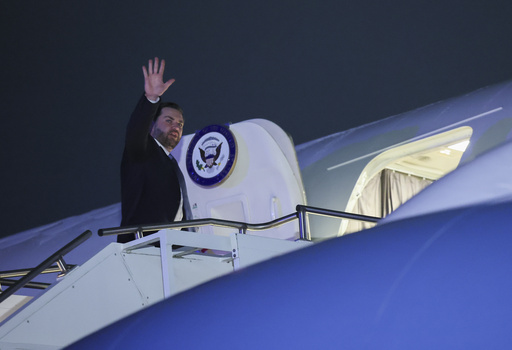
MUNICH — European leaders gathered to respond to a significant shift in Washington’s stance regarding topics such as democracy and Ukraine’s situation, with discussions taking place on Saturday. The Trump administration’s recent approach has disrupted the trans-Atlantic norms established after World War II, prompting a reevaluation among European allies.
German Chancellor Olaf Scholz and Ukrainian President Volodymyr Zelenskyy were scheduled to address participants on the second day of the Munich Security Conference. Their discussions followed U.S. Vice President JD Vance’s remarks, which seemed to admonish European nations concerning their commitment to democracy and questioned the level of U.S. support for Ukraine amid ongoing conflict with Russian forces.
In a phone call this week, U.S. President Donald Trump spoke with Russian President Vladimir Putin, indicating that the two leaders might soon meet to discuss a potential peace agreement. Trump reassured Zelenskyy that he would also be involved in the negotiations. This conflict began three years ago following Russia’s invasion of Ukraine.
Earlier on Friday, Zelenskyy emphasized his nation’s demand for security guarantees prior to engaging in any discussions with Russia. He stated that he would only consent to a face-to-face meeting with Putin after forming a unified agreement with Trump. Following a forty-minute dialogue with Zelenskyy, Vance reiterated that the Trump administration is eager to see an end to the war.
Prior to the meeting, Vance delivered a speech to European officials, addressing the importance of free speech and the issue of illegal migration within Europe. He warned that failure to adapt quickly might lead to dwindling public support for their policies.
“The greatest concern I have regarding Europe isn’t posed by Russia, China, or any external force,” Vance stated, making his point in a speech that received a lukewarm reception. “What truly alarms me is the internal challenge – the retreat from core European values that are aligned with those of the United States.”
Amid the conference, Vance also engaged with Alice Weidel, co-leader of the far-right Alternative for Germany party, known for its anti-immigration stance, just days before a significant German election. Mainstream political factions in Germany have consistently refused to collaborate with this party, adhering to a long-standing policy of rejecting far-right influences in a nation historically marked by Nazism.
After his engagements in Munich, Vance returned to Washington, while other prominent speakers at the event included NATO chief Mark Rutte and foreign ministers from various regions, including Canada, France, Germany, Saudi Arabia, as well as delegates from Syria’s newly established government.

